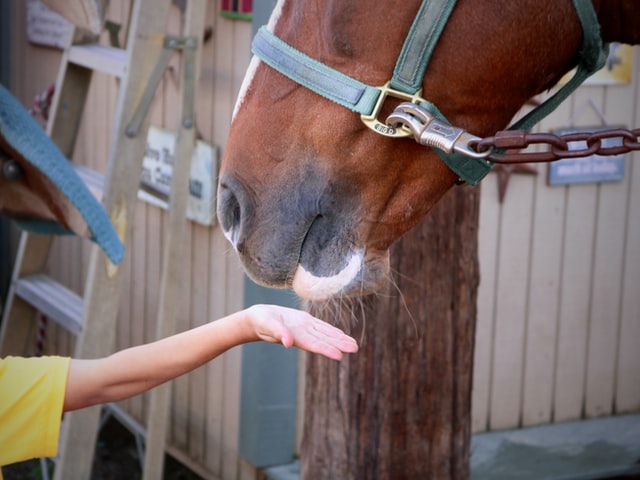In various states across the country, COVID-19 restrictions are lifting. Restaurants and cafes are opening, factories like Ford are starting up again, and athletes are soon to return to fields of play without spectators. Horse shows, too, are beginning to happen again, with the official USEF date of reopening being June 1.
Many of us are itching to get back to the show ring. For professionals, competitions are a vital part of the business—they are where coaching clients, developing horses, and buying and selling happen. For amateurs and young riders, showing represents an opportunity to work toward and achieve certain goals and qualify for bigger and better things like championships.
 Photo by James Lee/Unsplash/CC.
Photo by James Lee/Unsplash/CC.
I’m excited to compete again, too, but in the back of my mind I know that just because competitions are opening up now doesn’t necessarily mean they’ll still be running in three months. It’s a realistic possibility that a second wave of COVID-19 infections will follow a phased reopening—and official responses to this wave will likely include shutting down sporting activities like horse shows.
Without mass testing, there is a delay between when the virus spreads and when a new outbreak becomes evident. This lag happens because most people developing symptoms won’t show them for at least five days, and they can sometimes not show symptoms for weeks even if they are carrying the virus. This means that it will be easy to declare victory over the virus in the first weeks of reopening, because we won’t realize it if an outbreak is brewing. When you return to horse shows, don’t catch yourself saying, “It must have been fine to show because no one got sick this weekend.” The point is, we probably won’t know if someone got sick until a week or two after that horse show—and it will also be hard to know exactly where and when they picked up the virus.
Also, even if we do follow strict social distancing rules, wear masks, and disinfect surfaces regularly, there is always some risk in large gatherings of people congregating. Furthermore, there are associated problems that come with traveling and staying at horse shows: the hotels we stay in, the gas stations we stop at, and the restaurants we get takeout from all present opportunities for COVID-19 transmission.
We should be ready for competitions to close again if another outbreak occurs. It’s likely that some states will re-close sooner than others, and some may stay open regardless. But it would be a mistake to think that horse shows starting up now means that the virus is behind us. We might be able to show for a month before an outbreak occurs, or we might be able to show for six months. It’s hard to say. This unpredictability is frustrating, but riding horses is a privilege, not an essential activity, and we should treat it as such.
